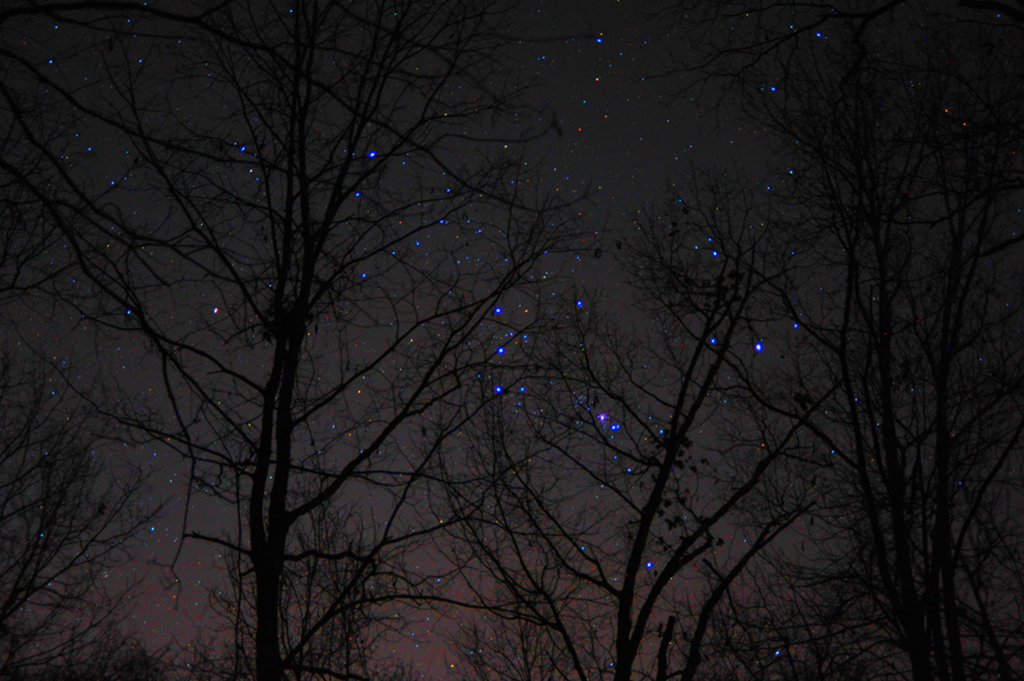
Craveology Cafe and the North Star Science Store are temporarily closed for renovation.

By Dr. Lisa Will, Resident Astronomer at the Fleet Science Center
Making its appearance in the evening sky in late Fall, Orion is perhaps the most famous of the winter constellations. The bright stars of this constellation capture the eye being instantly recognizable. Stargazers recently noticed Betelgeuse, the bright red star marking the left shoulder of Orion, was noticeably fainter to the naked eye in the last few months—the dimmest it has been during our lifetimes!
Image Credit: ESO, M. Montargès et al.
Born as a super-massive star millions of years ago, Betelgeuse is now nearing the end of its life and has expanded to become a red supergiant star. When a star is in this phase of its evolution, it is close to the end of its life. Due to its large mass at this point in its life, Betelgeuse will explode eventually to become a supernova. This occurs when a high-mass star uses up all of its nuclear fuel in its core, causing the core to collapse (forming a neutron star or a black hole) and its outer layers to blow off. The resulting energy causes the object to shine with a luminosity up to about 10 billion times the luminosity of our own Sun! Because Betelgeuse is relatively close by (about 700 light-years from our solar system), when it turns into a supernova, it might be as bright as our Moon in our sky and would be visible during the day—if it occurred during our summer, when Orion is above the horizon during the day. The last naked-eye supernova was recorded in 1604, so this truly would be amazing to witness.
Illustration Credit: ESO, L. Calcada
Will Betelgeuse explode soon? It could explode today, in one hundred years, in one thousand years, in one hundred thousand years; it’s difficult to predict. Stars in the supergiant phase of stellar evolution go though periods of variability in their brightness. Betelgeuse is a known variable star, with variations in brightness that occur over years to decades. This current dip in brightness was rapid and strong, with Betelgeuse appearing only about half its usual brightness in the sky. Does that mean it is about to explode? Probably not, but right now, skywatchers all over the world are hoping Betelgeuse will supernova soon!
Wishing you clear skies!